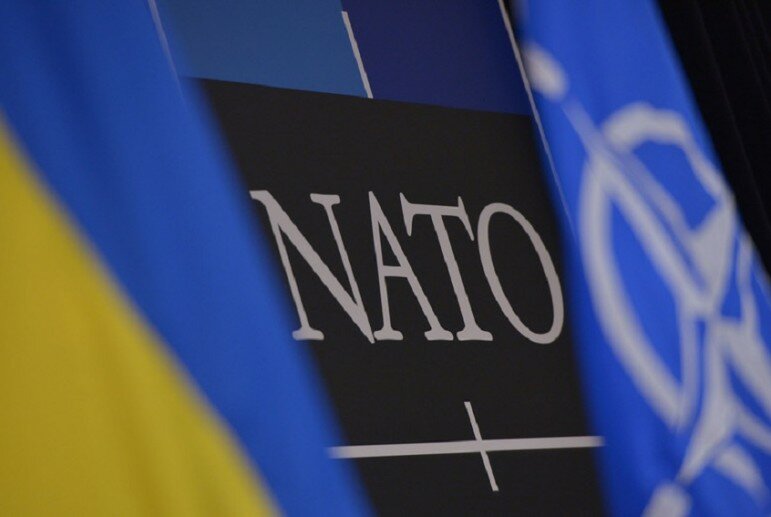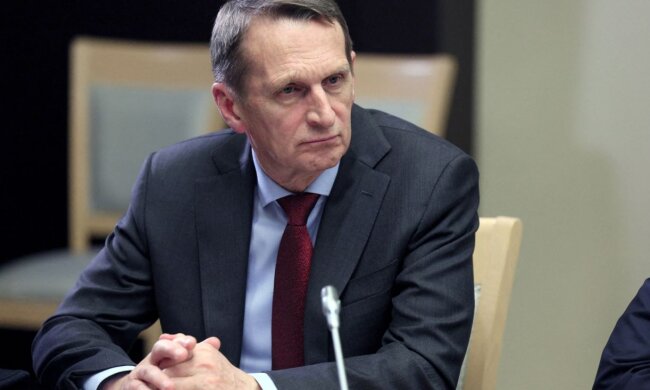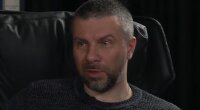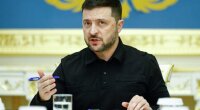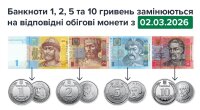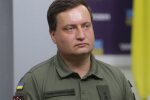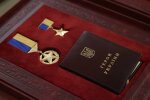On 1 February, approximately 2 months prior to the beginning of the Russian escalation, Volodymyr Zelenskyy addressed a rather strange question to Joe Biden: "Why are we still not in NATO?”. If only the President of Ukraine understood that the United States play on a common field ruled by the well-known principle of zero corruption, just like everyone else, then he would have a chance for an assist. Thus his shot did not even hit the post, the ball flew into the whistling spectators at the stands. Of course, the United States are capable of replacing NATO in a military situation, and one of such cases is described in this article. However even with the unconditional support of the United States, military aid may not arrive in time. And Ukraine will be left to defend itself on its own. For how long – no one knows. But it is definitely clear that our Ministry of Defense is already exhibiting a certain suicidal mood even before the start of a bloody massacre. Despite this, the United States acted as if Putin's troops were targeting not Kyiv, but Washington instead. Moreover, they have been assisting armies that took to the path of honor and valor for decades. Like, for example, in Georgia during Saakashvili's time. If the United States stick to their principles, which is beyond doubt, there is still a chance that Putin will break his teeth on Ukraine. No matter how weakened the young Ukrainian state is.
In the middle of three hotbeds
It would seem that these days all that any Ukrainian can worry about is how to survive three invasions: the COVID pandemic, the economic crisis and Russian aggression. We are confidently losing a lengthy biological war. While some are consoled by the fact that Ukrainians are not alone in this predicament, many others face reality without any illusions. People literally have to choose between the threat of dying from the coronavirus and the economic bottom.
And let’s not forget about Putin's military aggression. Although, it appears that the mood here is much more optimistic than on the two fronts mentioned above. The first seven years of the war against Russia proved that the Ukrainian army is capable of stopping the aggressor not only with heroism and people’s support. Ukrainian soldiers have acquired a completely unique combat experience that many NATO officers would envy. Judge for yourself, where else in the world can you find any non-simmering conflicts with pumped up terrorist groups? With constantly improving combat technique, full of unpredictability, on top of it. It is here that the Ukrainian army learned to restrain the most cunning aggressor in the world. This is somewhat encouraging. However a new round of Russia’s military escalation still raises doubts, can we handle it if a horde rushes at us from all sides? Who, if not NATO, could lend us a hand?
Only those whose silence has been bought are not talking about the prospect of Ukraine's membership in NATO today. At the same time, the most active supporters of the alliance naively think that NATO accepts members according to some mythical programs. Like at a university. You pass an entrane exam and become a student. This is only partly true.
A week and a new NATO standard
If we “not-standardized-enough“ are not really that welcome in NATO, then how can we explain the fact that some full-fledged member states of the Alliance have not even reached the waterline level of NATO standards? In a recent report by the analytical center New Europe, compiled with the support of the Marshall Foundation (USA), we see that Montenegro has mastered only 22% of NATO standards, Albania – 29%, and North Macedonia is scratching the bottom with under 1%. For comparison, according to the latest data, in January 2021 Ukraine implemented 292 NATO standards – 19% of the entire program. The analytical center notes that the current pace of Ukraine’ movement towards NATO has almost doubled in comparison with the first five years of the war. While Petro Poroshenko achieved 196 NATO points in five years, Volodymyr Zelenskyy raised the bar with another 96 in a year and a half. Is this a lot or a little? The average rate of NATO standardization in Ukraine is 0.73 standards per week for Poroshenko versus 1.2 standards per week for Zelenskyy's team. However in order to understand whether we are speeding in a brand new Tesla or crawling on a creaky dray, New Europe researchers predict our arrival time at point B – a complete NATO alignment. If we do not turn on the turbo mode, we will reach the North Atlantic collective security system in 2035. It is the best case scenario. Provided they want to see us in their family.
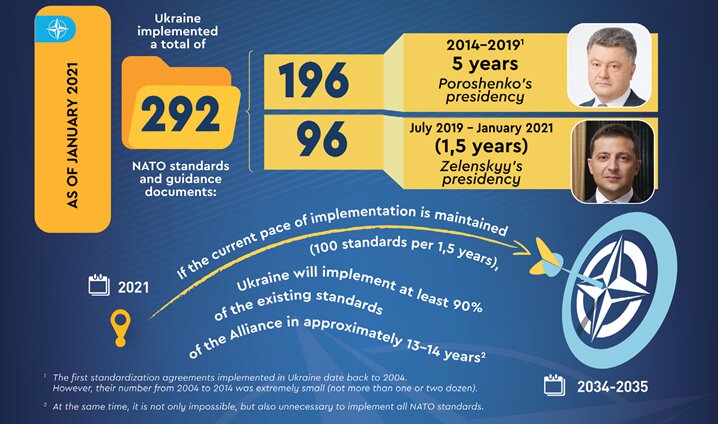
Source: Report "Ukraine and NATO Standards" with support of the Marshall Foundation (USA)
No NATO, but you hold on
What are we supposed to do if Russia enters the phase of open war against Ukraine by mythical 2035? There is no point in looking beyond such a distant horizon. Today, Russian troops are literally visible to Ukrainian officers through binoculars. And this is not a mirage, but a real alarming signal of the impending large–scale military invasion. How do you protect yourself from an attack if you do not have any strong partners, and on top of it you are significantly weaker than the aggressor?
Gela Vasadze, a leading expert at the Georgian Strategic Analysis Center (GSAC), uses the example of Turkey, which was admitted to the Alliance in 1952, thereby protecting it from a USSR attack. It is funny to think what NATO standards were at play at that time? However today it is Turkey that is in the lead in the system of military standardization and is rightfully considered one of the best countries for military education. The Military Strength Ranking, which assesses the military might and operational effectiveness of armies, puts Turkey in the 11th place in the world or 4th among NATO countries (trailing only the USA, France and Great Britain) in 2021. The GSAC expert speaks with regret about the NATO perspectives of today's Georgia, which, in his opinion, is creating problems for itself. The NATO family does not want to see countries that have trouble with human rights and destroy transparent democratic instruments of control, particularly over the security forces and the army. Gela Vasadze emphasizes that NATO is not just a defense system, but something much more – a system for building national security. And national security, as he points out, to a lesser extent consists of a military component, and to a greater extent – of developed democratic institutions.
Dimitri Shashkini, who served as Georgia’s Defense Minister in 2012, expanded on the topic of national security and NATO’s perspectives. In a telephone conversation, he spoke about Georgia’s way to NATO membership, what obstacles they faced, despite the unconditional support of the United States, and what role the United States played in repelling Putin's military attack in 2008.
Удар у спину: Путін та Маск влаштували окупантам "комунікаційне пекло"
Нацбанк вилучає з обігу популярні банкноти: які купюри зникнуть
Зарахують 1500 гривень на рахунок: гроші прийдуть до 16 березня
Вбиває батарею та екран: що необхідно негайно прибрати зі свого смартфона
The story of the former Minister of Defense of Georgia will be useful for Volodymyr Zelenskyy, the Ukrainian and NATO military, and everyone interested in this topic, as it will dissolve the mirage of Ukraine's immediate military prospects and help focus on reality. Dimitri Shashkini explains:
– Georgia came to the decision to join NATO the hard way. Even under Shevardnadze there was talk that Georgia should become neutral, like Switzerland. But the thoughts that neutrality for such a small country is a cure for all troubles were dispelled as soon as Abkhazia was taken away from us, and the war began in the Tskhinvali region. And then it became clear even to Shevardnadze that without joining NATO, Georgia would not be able to ensure its security and stable development. And although at that time many declarations were made about us wanting to become members of NATO, unfortunately, nothing was being done. Just like now. The people who are at the wheel in Georgia today are from the same Shevardnadze team, which declared many things but did not do them.
In 2003, when the Rose Revolution took place, the Georgian army was a very sad sight. The state budget at that time was only $500 million. With a budget like that, one cannot say that something was spent on the army or that new opportunities appeared in it.
It should be especially noted that the defense system in any country contains the highest corruption risks of all institutions existing in it. There are several explanations for this phenomenon.
The first factor. The Defense Ministry system is a state within a state. Due to security issues, any procurement can be labeled classified. Therefore, the lack of information about how many, for example, spoons you buy can be justified by the fact that we do not want the enemy to know how much of what we bought for our army.
The second factor. Communications. Take the Ministry of Internal Affairs, for example. Even it is more transparent than the Ministry of Defense, again because of the specifics. Because the Ministry of Internal Affairs is in constant contact with the population, and contacts with the Ministry of Defense are limited.
The third factor. The defense system has many complex internal mechanisms. For instance, it contains something resembling the Ministry of Foreign Affairs. This is the system of military attachés, diplomats who report to the Minister of Defense. Within the defense system there is also its own Ministry of Infrastructure, including construction brigades, repair battalions and their own equipment for the construction of structures. It has its own police, but military. Its own Ministry of Finance and so on.
And if from the very beginning the state leadership does not prioritize the absence of corruption in the Ministry of Defense, then opportunities for financial abuse there are plentiful.
Therefore, when Mikheil Saakashvili came to power, he was faced with two problems. The first one was the lack of finance. He increased the state budget by dozens of times – from 500 million to 7 billion in just a couple of years. It is easy to compare with Ukraine which is 10 times larger in population and almost 9 times larger in territory. One of the NATO standards is the salary level. During Mikheil Saakashvili's time, privates received up to $700, the mid level command staff – up to $1,500, and the majors and senior command personnel – about $2,500. Although there is an opinion that people are paid much more in the United States, this is far from the case. A completely different motivational system has been created for them. A lot of it has to do with social security – a story about what happens after retirement. As you know, on average, a serviceman retires at the age of 35. Therefore, I made an agreement with Blackwater (military company. – Ed.) for them to take our servicemen into their ranks. We also offered our military retirees education both for them personally and for their children, as well as free housing and health insurance.
The second problem that Mikheil Saakashvili faced in the defense system was corruption, which had to be eradicated. We understood that no matter what laws you pass, no matter what regulations you put in place, if there are people who want to engage in corruption, they will always find ways for stealing money. This problem was resolved by a team for which corruption was unacceptable.
Just look at how any brigade operates. It does not engage in economic activities, and military officers, leadership have no influence on procurement. Where are corruption risks? Let's say in the field of providing food for soldiers. Food provision is carried out through tenders, competition and outsourcing. Thus, there are outsourcing companies specializing in supplying food for military personnel. Our procurement according to the NATO model is under double control. The first control is exercised by the Department of Procurement in the Department of Defense, and the second one – by the corresponding service J in the Joint Staff, just like in the United States. They control each other. Thus, for you to conduct a procurement, you need two departments. In this system, the head of a brigade cannot engage in commercial activities and receive corruption money.
So, when two key problems – financial and corruption – were resolved, Georgia moved from declarations to real steps.
Our first step – Georgia began to take part in all NATO missions. For the peacekeeping mission in Iraq, Georgia was the leading country in terms of the number of military personnel per capita. Here it is necessary to distinguish between political and military issues. The military issue in Georgia has been settled. If you ask any high-ranking American officer, a general, they will all say as one that Georgia is ready to join NATO and NATO standards have been implemented in its army, we are equals and make an adequate contribution on the battlefield. And this is also due to the fact that, thanks to Saakashvili's reforms, there was no corruption in the defense system. Because for the military it is doubly difficult to risk their lives and see that someone is making money off of them.
We introduced Alliance standards gradually. NATO gave us home assignments, we did them well. Take, for example, the division of the Ministry of Defense into civilian and military sectors. This is the NATO standard, when the Ministry of Defense is run by a civilian – not a military man, while a regular military man is in charge of the General Staff. This separation is very useful and helps to exercise control effectively. The advantages of such organization include high army coherence in the elimination of the consequences of humanitarian disasters among the civilian population.
Let me give you an example. In August 2012, a hurricane swept through a region in Georgia, causing a lot of damage. Exactly 90 minutes later, units of the Ministry of Defense arrived at the site of the destruction and actively helped the authorities to cope with the disaster. We were given the task of completing the elimination of the consequences in 18 hours, which we successfully carried out. How did we manage do it so quickly? Because we trained our people according to the NATO standards for helping the civilian sector rebuild. Georgian servicemen had comprehensive knowledge of how to communicate with the civilian population, what to do and in what order.
To reveal the secrets for such speed and efficiency, it is enough to compare the military organization of the Soviet type and the NATO one. Remember how huge military bases were formed under the Soviet Union where the military and their families were quartered. This is a complete anachronism now. In our country, in accordance with the NATO model, the main combat unit is a battalion. Such structural divisions are scattered throughout the country, so it takes a very short time to mobilize them.
Also in Georgia we have plans for everything, developed by the Joint Staff, once again, according to the NATO model. It does not matter if something happens or not. For example, in the United States there is a strategy that we jokingly called “a plan for the zombie apocalypse" (global catastrophes). The UK (they do not try to hide it) has a plan in case of an alien invasion. That is, every NATO army should be ready for any, even the most fantastic, development of a situation.
However there is another very serious element of NATO standardization. We began to master it only after 2008, having gone through a general mobilization during the Russia’s attack. Volunteers all as one showed up after the outbreak of military activity. But communication between them and the military units was very weak. A single digital field was non-existent in the army at that time. And only in 2012 we began to automate the troops. It is difficult to say what state these projects are in today.
What else should be taken into account when creating an efficient NATO-style army? It makes no sense to just clone a model of foreign armed forces and their equipment. It is worth keeping in mind that any military force is built on the basis of the tasks the country is facing at the moment. If you look at the United States, their main striking force is aircraft carrier groups. Because their challenges are, as a rule, overseas. In the case of Great Britain, you will notice that the bulk of their air defense is located on ships, since it is an island. As you can see, the army is influenced by a lot of factors, from the geographical location and landscape to the parameters of potential enemies’ weapons. Due to the fact that Georgia is a small country with a mountainous terrain, one of our challenges is mobile regrouping of forces. We do not need as many tanks as Ukraine. In your case, everything is different – vast land borders with a potential enemy. In our military concept, we paid great attention to helicopters for the force deployment. I am talking about 2012, when I was the Minister of Defense, now the situation is different. The new government rejected the helicopters offered by the United States (Seahawk and Chinook). As for the French Super Puma brought in by us, they were sold by this government, and one crashed. Let me give you another example. Mikheil Saakashvili met with Obama who gave the go-ahead for the transfer of Hawk, an anti-aircraft defense system, to Georgia. Of course, its level is lower than that of Patriot. But for such a small country like Georgia, it is enough. And they are much better than Russian BUKs, because Hawk sees Russian planes before they detect air defenses. This is one of the main criteria. After Saakashvili left, the new government canceled the Hawk transfer, despite the fact that we had already deployed engineering battalions concentrating air defense points. Instead of this system, they purchased one from France, tuned to ultra-low altitudes, at which Russian planes do not fly. Their system is identical to Stinger. Russian planes invaded Georgia at an altitude of more than 10,000m. Thus, the purchased air defense does nothing to resolve the issue of the air threat to Georgia.
The air defense system, drones and artillery were extremely important to us even during the 2008 war. We built the Tbilisi defense system taking into account the fact that the main road to the capital passes through a canyon. And we were able to control this section of the way completely from a 25-kilometer distance with artillery. In principle, Russia could not lead a large number of troops under artillery fire through a narrow gorge. And even if it could, then with colossal loss of manpower. Everyone understood that.
But the outcome of the war came unexpectedly for everyone.
Despite the fact that we unilaterally ceased all military activity and retreated to the capital, the Russians did the same only after the flagship of the 6th Fleet entered the Black Sea, controlling the Volgograd-Moscow-Tbilisi triangle. And other ships followed it. As you know, in the NATO fleet, the main role is played not by the strike ship, but by the flagship – the command ship, which controls a territory with its radars. In addition, American Hercules aircrafts took off from Jordan and landed at the Tbilisi airport effectively covering the city from bombing with their bodies. They were accompanied by fighters. And when they entered Georgian airspace, they warned the Russians in plain text: "An attack on the Hercules will be regarded as an attack on the United States."
This is a real life example of what Putin is really afraid of. What stops him.
However, not everything went so smoothly. In 2008, Bush's reaction was somewhat belated – by 5 days. Therefore, the heroism and professionalism of the servicemen who managed to hold out the defense for 5 days was important to us. The manpower of more than 120,000 went against us. They had complete air supremacy. At that time, Georgia did not even have fighters. We fought against them only with air defense means.
That is why at this historical moment US actions are more important to Ukraine than those of other NATO members. Look. Landing Hercules aircrafts is a concrete step. The flagship entering the Black Sea is also a concrete step. After all, the launch of a peacekeeping operation led by the Secretary of State is a very concrete step. Of key importance to Ukraine is the answer to the question: How quickly will the United States move from declarations to concrete steps?
We were following a clear plan to the NATO membership, and I really hope we will continue doing it. In the Ministry of Defense, we had a special department for rapprochement with NATO, which was directly responsible for the home assignments given to us by NATO. They were mostly guys who were educated abroad. And along with the military who studied in the US and Turkey they were responsible for implementing these standards.
Despite our best efforts, the issue of Georgia's entry into NATO was hanging between Germany and Russia. At the Bucharest summit, we were very close to joining the Alliance. Just like Ukraine. But we did not get the membership because it was primarily opposed by Germany. Although, I have to admit that there were several other countries blocking Georgia's joining the Alliance all the time. Oddly enough, these are Italy and the Netherlands, although the issue with them is solvable. Germany, on the other hand, looks at NATO through its own prism, despite the fact that their interests do not differ in any way from those of the United States, whose generals openly say: "We are ready to accept Georgia into NATO even tomorrow." Thus, in Bucharest Georgia was stopped by Merkel. I disagree with her, but I understand why it was done.
The most important thing for any government is to stay in power. Therefore, they [representatives of NATO countries], before making a decision, look at how voters will react. Let me give you a terrible example. When Russia invaded Ukraine, for a very long time, many countries limited themselves to some kind of statements. Crimea was taken away – general statements, Donbas was occupied – general statements. Do you remember when Germany went from general to specific statements? This was after the plane was shot down with German citizens on board. When the German government saw coffins appear on their territory resulting from Russians’ actions, then it stopped being someone else's story.
Putin, unlike leaders of democratic countries, has the biggest head start – he has no time limit. He has been in power for over 20 years and will probably remain for as long as he is alive. In Europe, however, they look 4-8 years ahead, keeping an eye on the mood of voters. Therefore, you need to work with them and convince them, strengthening bilateral ties.
What factors does a country need to join NATO? The first one is the political component. It is double-sided. For example, a referendum was held in Georgia, which showed that 77% of its citizens want to be in NATO. Now what is left is for the other side to accept us. The second factor is technical. It is not only weapons, means and communication protocols, ammunition, but also the organizational structure of the army. The year of 2008, when the war began, and the local conflict on the border in 2012 emphasized that in the 21st century, internal communication between military units, servicemen is very important. It has a huge role to play. You can easily train a soldier to shoot in 6 months. But it is even more important to teach him internal communication, combat algorithms (what he is supposed to do when in one case or another). And, finally, the military-related readers of this material may find the following rule useful: train and improve regularly. Warfare techniques are constantly becoming obsolete in rapidly changing models of war. Let me give you another example. In August 2012, we had a clash on the border with Dagestan, when a group of Chechens tried to cross it into Georgia. Subsequently, our partners from the United States scrupulously studied all the details of the battle at the scene of the incident. It turned out that the enemy group used a completely new tactical formation, which had not been used before, neither in Iraq nor in Afghanistan. And this is another confirmation that the army cannot remain conservative. This is an indisputable fact. Therefore, it is necessary to rethink the concept of warfare on a planned basis once a year, and if something incomprehensible happens, then do it unscheduled. Even if there is a confrontation in some other country, find an opportunity to study it right away in order to be ready for something new.
NATO against corruption
Tо steal or not to steal? NATO has answered this philosophical question with a resolute “no”. Karolina MacLachlan, who earned her doctorate from the Department of War Studies at King's College London, wrote a popular article for the Alliance on the toxicity of corruption. In addition to hindering economic growth and development, corruption, according to Dr. MacLachlan, is detrimental to national and even international security. The researcher provides examples of cases in which all efforts of the combined NATO troops turned out to be in vain, as soon as swindlers at various levels of government got down to business in liberated countries.
“Corruption was also a key factor contributing to the failings of international interventions in Iraq and Afghanistan. Widespread corruption and state capture by criminal networks undermined the legitimacy of the Afghan government, reduced its effectiveness and created a source of resentment for its own population… In the words of Ryan Crocker, former United States Ambassador to Afghanistan: “The ultimate point of failure for our efforts…wasn’t an insurgency. It was the weight of endemic corruption.” Karolina MacLachlan concludes.
Since 2016, NATO has included the fight against corruption into its main agenda, significantly expanding the related programs called NATO Building Integrity Policy. NATO's anti-corruption activities are becoming one of the main tasks of the Alliance. It has realized that corruption is detrimental to any mission, be it military or humanitarian.
Dr. MacLachlan points out: «While corruption in any sector can be damaging, corruption in the defence and security forces – those tasked to protect the population and respond to insecurity – is particularly pernicious. In some cases, the effects of corruption are immediately visible, with predatory security forces abusing the populations they were set up to protect. In other cases, the secrecy and confidentiality that often accompanies this sector can hide the effects of corruption, until a crisis and a large-scale failure.»
Carolina MacLachlan dedicates a special place in her research to Ukraine.
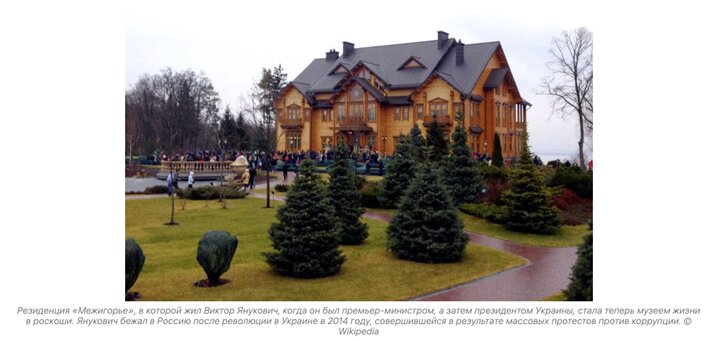
Mezhyhirya, a residence Victor Yanukovych used to occupy when he was the Prime Minister and later the President of Ukraine, is now a museum of luxurious life. Yanukovych fled to Russia after the 2014 revolution in Ukraine brought about by mass protests against corruption. @Wikipedia
A photo of the symbol of Ukrainian corruption – the former residence of Yanukovych – is published on the NATO website. Directly above it, Dr. MacLachlan summarizes: “The impact of corruption on national security, sovereignty and independence has been well illustrated by the developments in Ukraine. Former US Vice President Joe Biden stated, in 2009, that “Russia over the last decade or so has used another foreign policy weapon. It uses corruption as a tool of coercion to keep Ukraine vulnerable and dependent. So pursue those reforms to root out corruption. It’s not just about good governance. It’s about self-preservation. It’s about your very national security.” Corruption is frequently thought of as a cancer – a malicious but amorphous force undermining development and security. This interpretation, however, misses the crucial ways in which corrupt practices can be used intentionally, consciously employed by one state to undermine another’s choices and freedom of manoeuvre. Corruption vulnerabilities, especially in the key defence and energy sectors, should be viewed as enablers for unconventional warfare which threatens NATO Allies and partners."
Using a specific example, the corruption researcher illustrates what uncontrolled peacekeeping practices can lead to: “In the early years after independence in South Sudan, for example, the ruling elite diverted oil revenues to fund patronage networks through defence sector expenditures. A bloated military budget was used to pay the salaries of 230,000 soldiers and militia members belonging to various patronage networks. Meanwhile, other departments’ budgets were raided and resources redirected to the defence sector: in 2012, when defence and security expenditure constituted 35 per cent of South Sudan’s budget, donors funded 75 per cent of South Sudan’s health sector."
A similar corruption story recently happened with a Ukrainian military project facilitated by Paul Scott, a representative of the NATO C4 Trust Fund. In the second year of the Russian-Ukrainian war, military unit No. 2724 was formed, the main objective of which was the development and implementation of an operational military video surveillance system. The project was named Delta, and it included both volunteers and servicemen of the contract army. Delta was financed by the taxpayers. The military unit was in need of volunteer help in every possible way, which did not prevent its commander from purchasing computer components at significantly inflated prices through the Prozorro.procurement system. In the end the government-financed assets (Delta software) ended up fully in personal property of a group of servicemen of the military unit No. 2724 as indicated in the public bulletin of the Ministry of Economic Development and Trade (pp. 156 and 157).
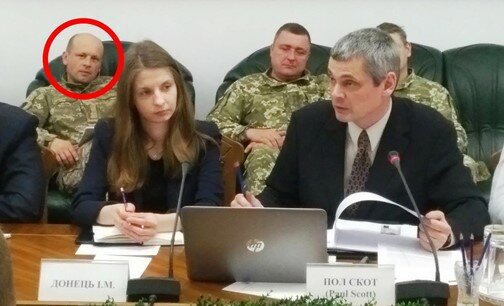
The red circle in the photo marks the organizer and accomplice of the state property appropriation scheme, former adviser to the Minister of Defense, Lieutenant Colonel Yaroslav Gonchar. Photo: mil.gov.ua
In the internal audit report of the Delta project, this fact was attributed to numerous corruption risks, which forced the entire group of accomplices to return the military software they had privatized to the state. To do this, they went through legal procedures for the alienation of illegally privatized property. The command staff of the Ministry of Defense turned a blind eye for several years in a row to the fact that the organizer of the schemes illegally combined military service with commercial activities and evaded taxes on businesses that brought him a multimillion-dollar income. An anti-corruption body – the Bureau of State Investigations – is conducting a criminal case for declaring false information against Paul Scott's partner from the C4 Trust Fund, Yaroslav Gonchar. But the most surprising thing in this story is that access to state secrets and NATO aid was entrusted to a random entrepreneur who directly controls about 10 companies, and through family members is tied to more than 30 legal entities involved in crime. Moreover, it is completely unclear what could have possibly prevented representatives of the NATO C4 Trust Fund, Ukrainian security services and investigative journalists from using the public service YouControl, which in a matter of minutes can provide you with reliable information about the subject, his connections and criminal traces left in the court register.
In Ukraine, people bitterly joke that if corruption capital is taken out of the shadows, it will be enough for Ukraine to finance not only NATO, but also the IMF. In the meantime, the opposite is true – corrupt officials are asking the North Atlantic Alliance and the International Monetary Fund for help, abusing the trust of world leaders. While journalists, who enjoy the recognition and support of Western donors, invite corrupt officials to their programs, assigning them the role of experts, whose opinion is relayed as indisputable facts without any fact-checking.
Military expert vacuum in Ukraine
The writing of this material has revealed huge gaps in the Ukrainian expertise on the topic of NATO and corruption in the army. When the author of the article looked for at least something useful on the topic in open Ukrainian sources, he did not find anything behind flashy titles of authoritative, at first glance, analytics.
Take, for example, a very popular article by Ukrainian columnist Pavlo Kazarin, who, under the loud headline "War and Corruption" exactly three years ago, contrasted two, in his opinion, greatest threats to the Ukrainians. The author put two antagonistic narratives, war and corruption, on the opposite ends of scales. He depicted Ukraine as a frozen Buridan’s ass hesitating between baits. Only this stubborn hero of the parable is special, he rushes not towards “food”, but from it: either from corruption or from war. The donkey, according to Pavlo's article, is ruled by fear, not hope. The polarization of war and corruption as portrayed by the journalist has one essential trap of consciousness. Under the very bright verbal packaging of the topic on the choice of Ukrainians, semantic confusion and a lack of understanding are revealed. What should be done? After all, the juxtaposition of war and corruption agendas is absurd: it is the same as comparing something white with something salty. Two incomparable concepts. If we weigh entities of the same order, then on the Ukrainian scales Russia should be opposite the weight of corruption. Firstly, both ballasts are phenomena, secondly, they are subjectivized in persons, and, finally, they represent hotbeds of threat. And the war is something that flows from the hotbed, that is, from the Kremlin. It cannot exist on its own, burning out houses like ball lightning.
But what Kazarin is certainly right about it the following: "Wartime" can serve as an ideal excuse for corruption schemes. The abuse is perfectly attributed to "special conditions." An urgent need. An exceptional situation. "The war will write everything off" – for some it has become a universal explanation of their own presumption of innocence."
The informational and semantic gap in Ukraine’s military-political topics suggests that someone has planned it this way to contribute to the lack of change. Articles, analytics, after reading which it is completely unclear where to go and what to do, are a clear signal that certain journalists and analysts have found and realized themselves in controlled chaos. When chaos gives way to order and stability, the ground will disappear from under their feet. Just compare the theses of Dr. MacLachlan with those of Ukrainian authoritative authors. Her clarity, semantic fullness, truthfulness and unambiguous guidelines are unlikely to elude your eye. Ukrainian authors, on the other hand, create the effect of uncertainty, intimidation and panic in the reader. In general, we have someone to strive after in Ukraine.
I really hope this article will start an assembly of Ukrainian analytical resources, including a fact-checking platform, which will help readers find answers to the most important questions in a specific historical period of time.
What is good for a Russian is deadly for a German?
Being aware of the Ukrainian army risks before possible Russian invasion, the author could not help but ask: what about corruption in the Russian army and how it can affect the course of a full-on war? After all, we must be clear about who we are going to fight against.
The website of the Russian Ministry of Defense shows figures on the dynamics of corruption in the army. So, from 2018 to 2019, the number of crimes related to bribery alone increased by 20%. The public report for this period provides specific examples, including bribery of officials for concealing disciplinary violations (desertion, drunkenness), awarding high qualification points, self-accruing mythical bonuses, and payments for forged medical documents. According to the published data, 72% of bribery crimes were committed by military personnel, of which more than 50% were officers.
In 2020, the situation with corruption in the Russian army only worsened. The Main Investigation Department of the Investigative Committee of the Russian Federation published a report according to which the number of corruption acts increased by almost 9% over the year.
“At the same time, the amount of proven material damages in criminal cases completed in 2020 also increased. It is more than 30% higher than the same indicator in 2019 and amounts to 6.4 billion rubles," the report reads.
A reasonable question arises: if NATO is openly talking about the deadly toxicity of corruption for its own armies, then how soon will it break the wheels in the Russian military machine?
Gela Vasadze, a leading expert at the Georgian Strategic Analysis Center (GSAC), decisively rejects the factor of corruption damage to the Russian army. He explains his point of view by saying that corruption can only harm the army of a democratic state, undermining internal trust and all the institutions on which the system rests. Contrary to public stereotypes, according to the GSAC expert, corruption in the army system of a totalitarian state works the other way around. It motivates the military personnel to hold on to their place and enrich themselves in imperial wars. “Corruption weakens democracy and strengthens totalitarianism,” Gela Vasadze sums up and recommends turning to historical facts.
History teacher Nina Zhmaylo (Kyiv) draws attention to the significant differences between Ukrainians and Russians. She gives a brief historical overview: “In Russia, since the formation of the Moscow principality, corruption has been the basis of public administration. One of the explanations for this phenomenon may be the fact that the state treasury was chronically empty. The state was not able to provide for those obliged to fill it due to lack of funds. Therefore, they rewarded themselves by having direct access to money (taxes). In such a state, the families of those close to the king's court were rapidly enriching. Hence the embezzlement. And another form of corruption, bribery, appeared later, when an official influenced the resolution of someone's problem, using his official position or grossly encroaching on the law (extortion). Almost the entire history of Russia, starting from the origins of the Moscow principality, is about corruption and bribery. Bribes as a form of resolving issues were not punished in Russia since the early days, with the exception of the ban on unlawful benefit of judges. Peter I was a pioneer in the anti-corruption fight by taking decisive measures. He treated bribe-takers extremely harshly, but in the end it was all in vain. After Peter's death, his widow Catherine I legalized corruption. She introduced a rule in Russia according to which “salaries are not to be given to clerks, who should be content with what they get from their work as usual from petitioners, who will give them something of their own free will, since they never had a salary beforehand, but they had food even without it." Each subsequent emperor attempted to drive out the parasites that corrode the state from within – bribery and embezzlement. But neither efforts of Emperor Nicholas I nor the great “Alexander" reforms were able to change the Russian state traditions – to lie and steal. And since Russia as an empire stood and grew on the basis of wars that continuously replaced one another, to this day we see that one of the most numerous armies in the world retains a reputation, which is expressed in the shortest historical anecdote: "They steal." Military historian Yevgeny Tarle wrote about the harmful influence of corruption in the Russian army in his book The Crimean War: “A soldier was tortured, taught completely unnecessary and ridiculous techniques and prepared for parades and reviews, but not for the war. And besides, the army was systematically robbed, and this circumstance is closely tied to the unheard-of rampant predation common to all departments in Russia, which gradually assumed quite incredible proportions. Alexander I was persistently attributed the aphorism he allegedly said at the end of his life about the dignitaries around him, and these words were especially often repeated in the Western European pamphlet literature in 1854-1855, during the Crimean War: “They would steal my military ships-of-the-line, if they knew where to hide them, and they would steal my teeth in my sleep, if they could pull them out of my mouth without waking me up”. Prince Dolgorukov, the Minister of War, as the historian Tarle writes, was accused of "embezzlement, bribery, feeding soldiers and sailors rotten breadcrumbs, selling lint and medical supplies to the British." It is very surprising why the Russians still call Sevastopol "the city of Russian glory." After all, Table cites historical facts of Russian infamy: “The most curious thing here is that Vasily Dolgorukov himself, the Russian Minister of War, who was primarily responsible for the terrible decay in the Russian military organization, humorously explained to the amazed French emperor how absolutely nothing was done by the Russian government for defending Sevastopol... A Minister of War like Vasily Dolgorukov was the perfect match to a supreme Commander-in-Chief like Prince Menshikov. "
An ancient proverb comes to mind: "What is good for a Russian is deadly for a German." Russians like to flaunt these words in the West’s face. Especially when they want to impress those who are much stronger with their indestructibility.
However real historical experience may indicate otherwise. Pathological corruption and lies in the army system are destructive even for authoritarian regimes that may dominate for decades, but eventually perish and decay.
This means that the main threat to Ukraine has not disappeared. Yes, Russia has launched a self-destruct timer. But it will have enough time to take "to the other side” any weakened, lonely in the military-political sense state, which catch its imperial eye.
That is why Ukraine today needs a partnership with democratic superpowers or NATO. Moreover, on the part of Ukraine, first of all, real and confident steps are required, without fraud and imitation, from which almost all presidential teams have suffered from 1991 to the present day.
